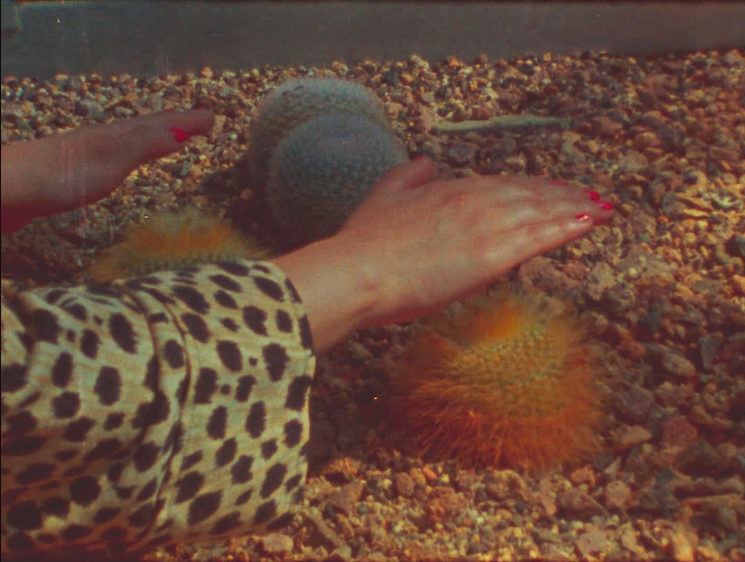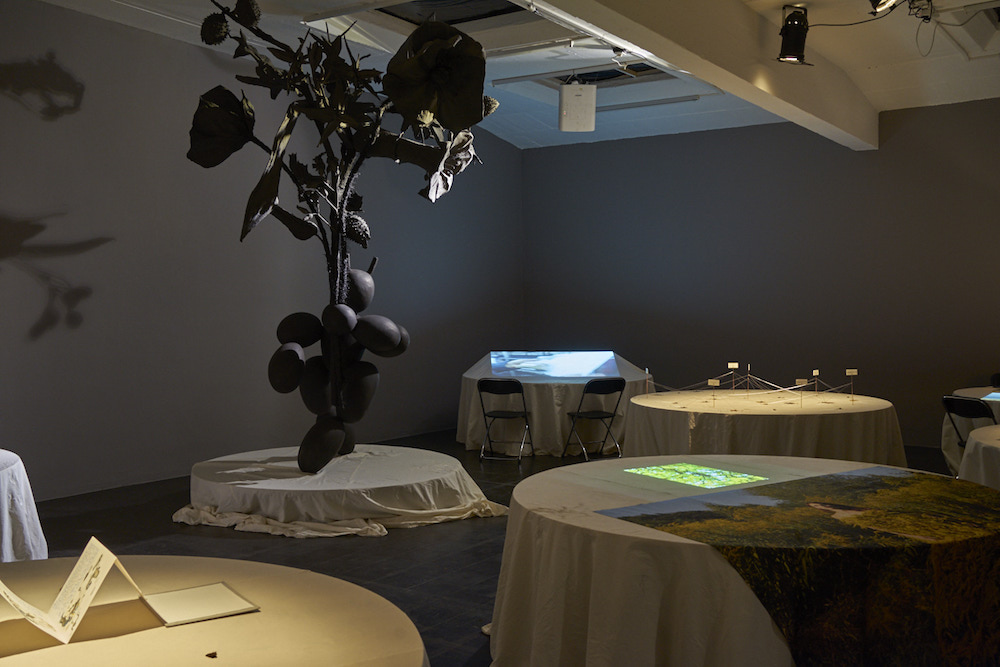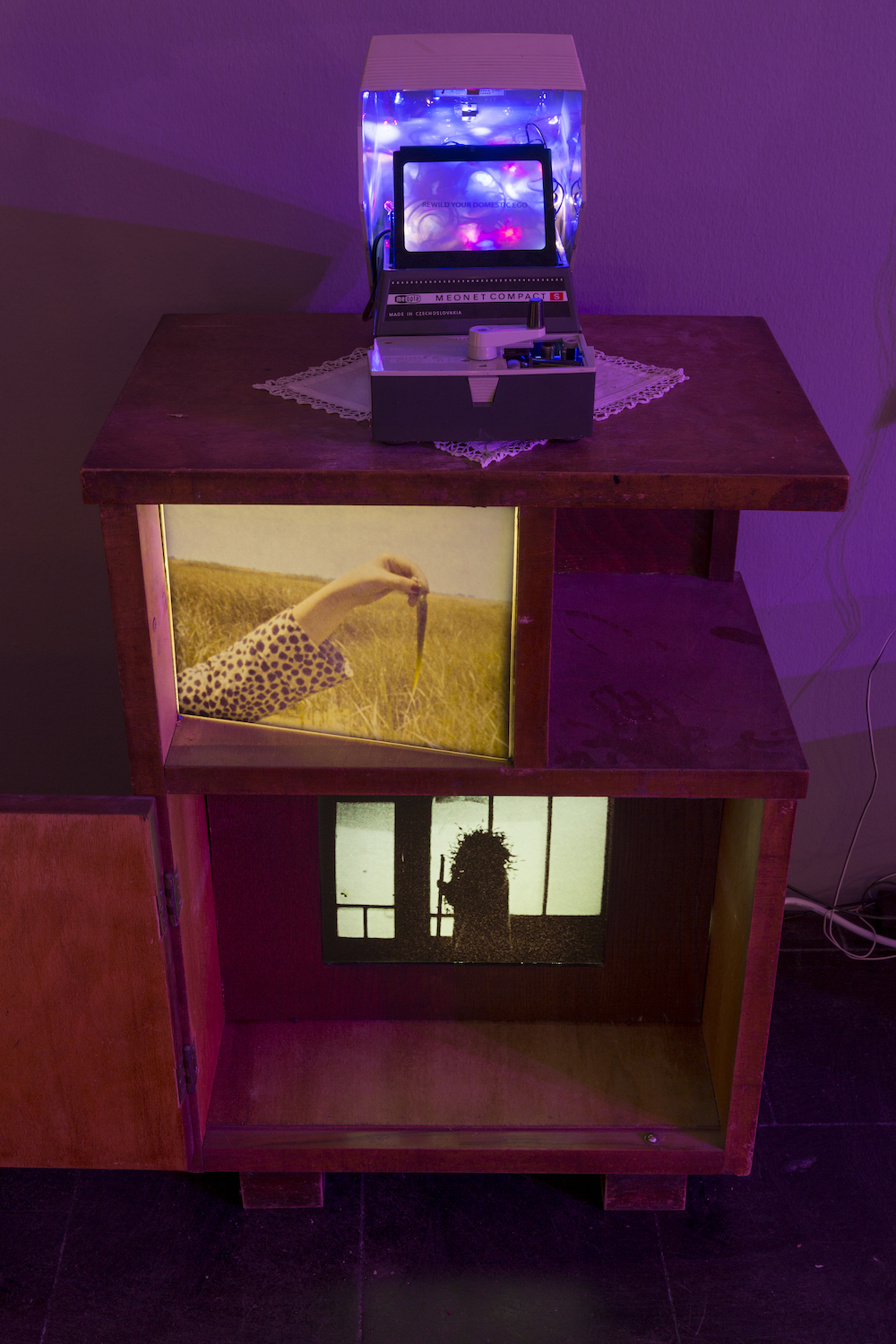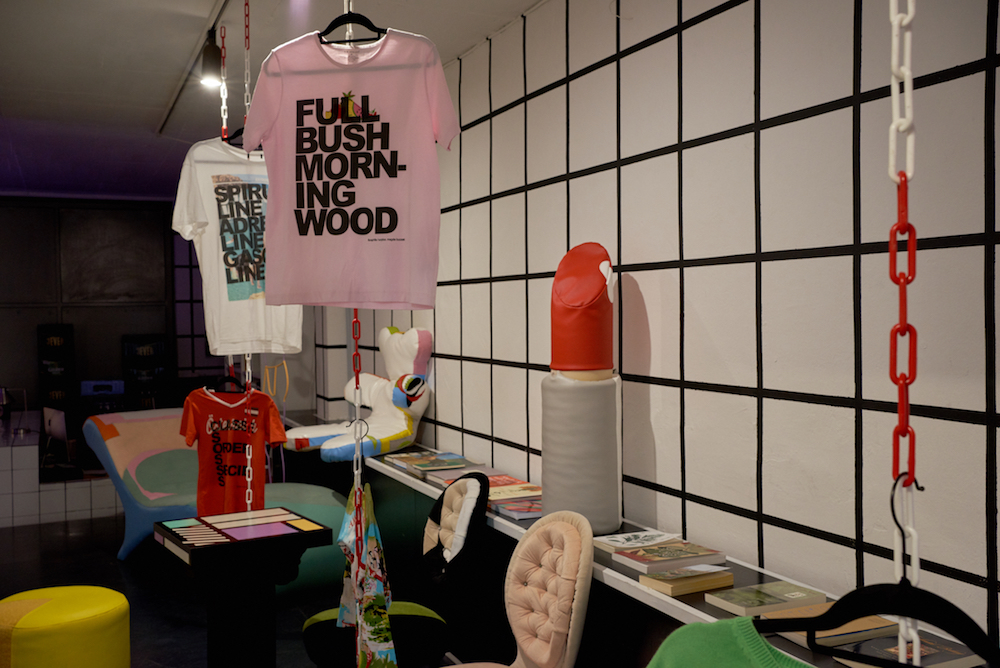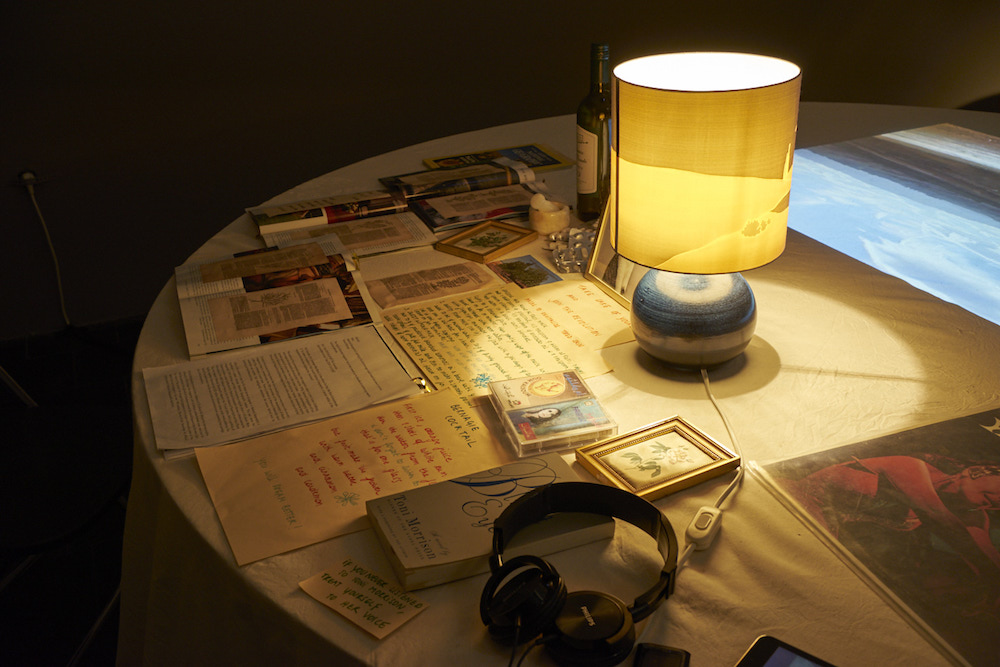FLORAPHILIA. REVOLUTION OF PLANTS
Agency of Singular Investigations (Stanislav Shuripa, Anna Titova), Milena Bonilla, Magda Buczek, Igor and Ivan Buharov, Saddie Choua, Ines Doujak, Ruth Ewan, Dagna Jakubowska, Candice Lin, Cecylia Malik, Bianka Rolando, Beatriz Santiago Muñoz, Buket Sanati, Åsa Sonjasdotter
7 March—20 September 2020
Opening: 6 March, 7 p.m.
Special opening hours and guided tours in August!
Every Sunday from 12 to 8 p.m. the gallery can be "booked" for private viewings" to see the show Floraphilia. Revolution of plants". The time slots start with a short introduction to the exhibition every hour on the hour. If you would like to visit the exhibition, please register for a one-hour time slot. Registration at: so@temporarygallery.org (please state your own telephone number and desired time window).
Dates:
2, 9, 16, 23 and 30 August
at 12–1 p.m., 1–2 p.m., 2–3 p.m., 3–4 p.m.,
4–5 p.m., 5–6 p.m., 6–7 p.m. and 7–8 p.m.
We also present an online version of the exhibition "Floraphilia. Revolution of plants" for public access. A part of the planned events will also take place in virtual space.
Links to the online version of the exhibition:
Film with a guided tour around the show by the curator Aneta Rostkowska. (click here.)
Playlist with films included in the show. (Click here.)
Password: Temporary-Gallery
Online folder with photos, descriptions etc. (Click here.)
To hear more about the exhibition you can also listen to the podcast „Sadness of Missing Out“ by Lena Ditte Nissen. (Click here.)
It is striking how popular the hobby of growing plants has become in recent years. Instagram is filled with photos of interiors decorated with potted plants (succulents seem to be particularly well liked), new blogs devoted to plant care crop up almost every day, and urban gardening is constantly on the rise. What is the reason behind this increased interest in the domesticated natural world? In his essay “On Lyric Poetry and Society”, Theodor W. Adorno claims that nature becomes sacralized because of the individual’s alienation in a capitalist society, causing him or her to seek a place of escape. What is more, the prestige of nature increases in periods of political disaster, when hopes for a revolutionary societal transformation have been let down. Nature becomes an area in which the alienated individual finds a relief. While it does not eliminate the underlying cause of the poor mental state, contact with flora calms one down.
Yet is such a vision of nature - as a completely depoliticized means of improving our mood, a perfectly functioning consumption object - the only one we have at our disposal? Definitely not! The exhibition “Floraphilia. Revolution of plants” frees the world of plants from the reactionary context of interior design magazines and eco-trends, revealing its emancipatory potential leading to social transformation. The space of CCA Temporary Gallery will turn into an anarchist laboratory of the revolution-to-come, which will become possible through interspecies exchange. Plants decorating our shelves and window sills will transform into sources of inspiration for political activity. We are fascinated by their resilience, adaptability and communication skills as well as their indifference to state borders. For instance, the Canadian goldenrod instils in us an element of disobedience, the Japanese rose teaches us to evolve in line with our surroundings, while the calamus turns into a symbol of renewal and purification. Plants are community beings by nature – not individuals forming clear boundaries from one another. Their identity is deeply pluralistic: from roots that are a source of decentralized intelligence to dependency relationships that tie them to other organisms. Does it not seem like a panacea to contemporary individualism?
What follows is a questioning of the common understanding of plants as mechanical “things” that react solely to simple stimuli. Plants leave the lowest position in the hierarchy of beings, leading us to a vision of a fundamental continuity between humans and plants, the latter of which – dynamic, breathing and growing – are endowed with intentionality and even memory.
The unique architecture of the exhibition strengthens the ritualistic, communal and scientific themes present in the artworks. Tables covered with cloths, like altars, emphasize the need to go beyond the instrumentalization of nature based on the disenchantment of reality: selected religious or shamanic beliefs go hand in hand with the discoveries of modern science, showing plants as much more complex organisms than it could seem. Tables and chairs encourage visitors to spend more time in the exhibition space: see the works, read the publications, and talk about them with other visitors. It is an attempt to introduce a different type of temporality into the exhibition space, one that would be closer to the slowly developing world of plants and in opposition to the usual practices of viewing exhibitions. The exhibition space constructed in such a way also brings to mind a meeting place of a mysterious sect, which sees the practices of observing and examining plants as the beginnings of a future revolution.
A special edition of the SURPLUS project will also be present: the artist Magda Buczek digs into discourses, lifestyle trends and modern ecologies to fish for new semantic fetishes concerning the world of flora. Her slogans are printed on used garments in a limited edition of ten.
The exhibition is a spin-off of the project “Floraphilia: On the Interrelations of the Plant World, Botany and Colonialism”, realized in the years 2018-2019 by the Akademie der Künste der Welt (Academy of the Arts of the World) and funded by the German Federal Cultural Foundation. Its goal was to illuminate the social and political aspects of the history of plants, botany and botanical gardens, in particular plants’ co-option throughout colonial history, as well as their economic, feminist and migratory contexts. The project started in 2018 in Cologne with the exhibition “Floraphilia. Plants as Archives” and was followed by the symposium “The botanical garden as a colonial site”. In 2019 it continued in other locations with the involvement of international partner institutions, events took place in Berlin (in collaboration with Savvy Contemporary), Aalst (prepared jointly with CIAP Kunstverein and Netwerk Aalst) and London as part of the Critical Ecologies research stream at Goldsmiths, University of London. The exhibition at Temporary Gallery is a reworked version of the exhibition “Floraphilia. Revolution of plants” that happened at Biennale Warsaw in 2019.
The exhibition is accompanied by a publication of poems by botanist and poet Urszula Zajączkowska, you can download the exhibition flyer with all poems here.
Exhibition curator: Aneta Rostkowska
Exhibition design: Mateusz Okoński
Funding and support
Die Beauftragte der Bundesregierung für Kultur und Medien
Ministerium für Kultur und Wissenschaft des Landes Nordrhein-Westfalen
Kulturamt der Stadt Köln
Hotel Chelsea
Deltax Wirtschafts- und Steuerberatungsgesellschaft mbH
The greenhouse lamps for Igor and Ivan Buharov’s installation have been kindly lent by LED Farmer (www.ledfarmer.pl).
Images
1 — Igor and Ivan Buharov: Warm waters, 2019
2 — Installation view
3 — Installation view
4 — Installation view
5 — Igor and Ivan Buharov: Eternal Intentionfield Tuning, 2018
6 — Igor and Ivan Buharov: Eternal Intentionfield Tuning, 2018
7 — Igor and Ivan Buharov: Performance
8 — Igor and Ivan Buharov: Performance
9 — Ines Doujak: Exu,2017
10 — Magda Buczek: SURPLUS X Floraphilia no. 1 - no. 100, 2018
11 — Bianka Rolando: Solidare, 2019
12 — Candice Lin: 5 Kingdoms (Etching), 2015
13 — Dagna Jakubowska: Weeds, 2019
14 — Milena Bonilla: Spring starts as a murmur (Utopia), 2019
15 — Saddie Choua: Take care of yourself and join the revolution, 2019
16 — Agency of Singular Investigations: Botanic-Political Lexicon, 2018
17 — Cecylia Malik: Goldenrod, 2013
18 — Cecylia Malik: 365 trees, 2009-2010
Foto: 2, 3, 5, 6, 10, 12, 13, 15 — Tamara Lorenz
4, 8, 9, 11, 14, 16, 17 — Luise Flügge
18, 19 — Cecilia Malik
